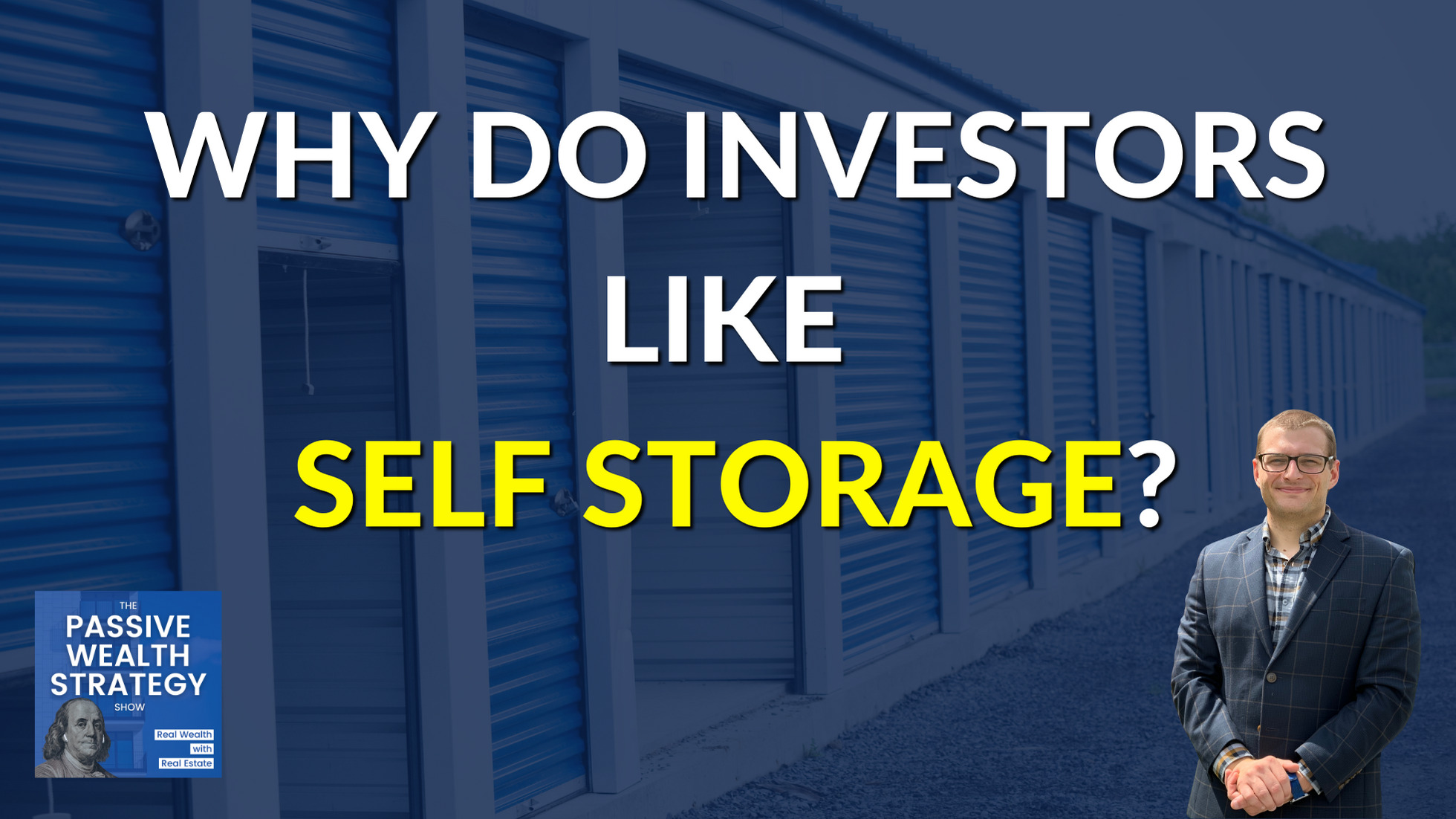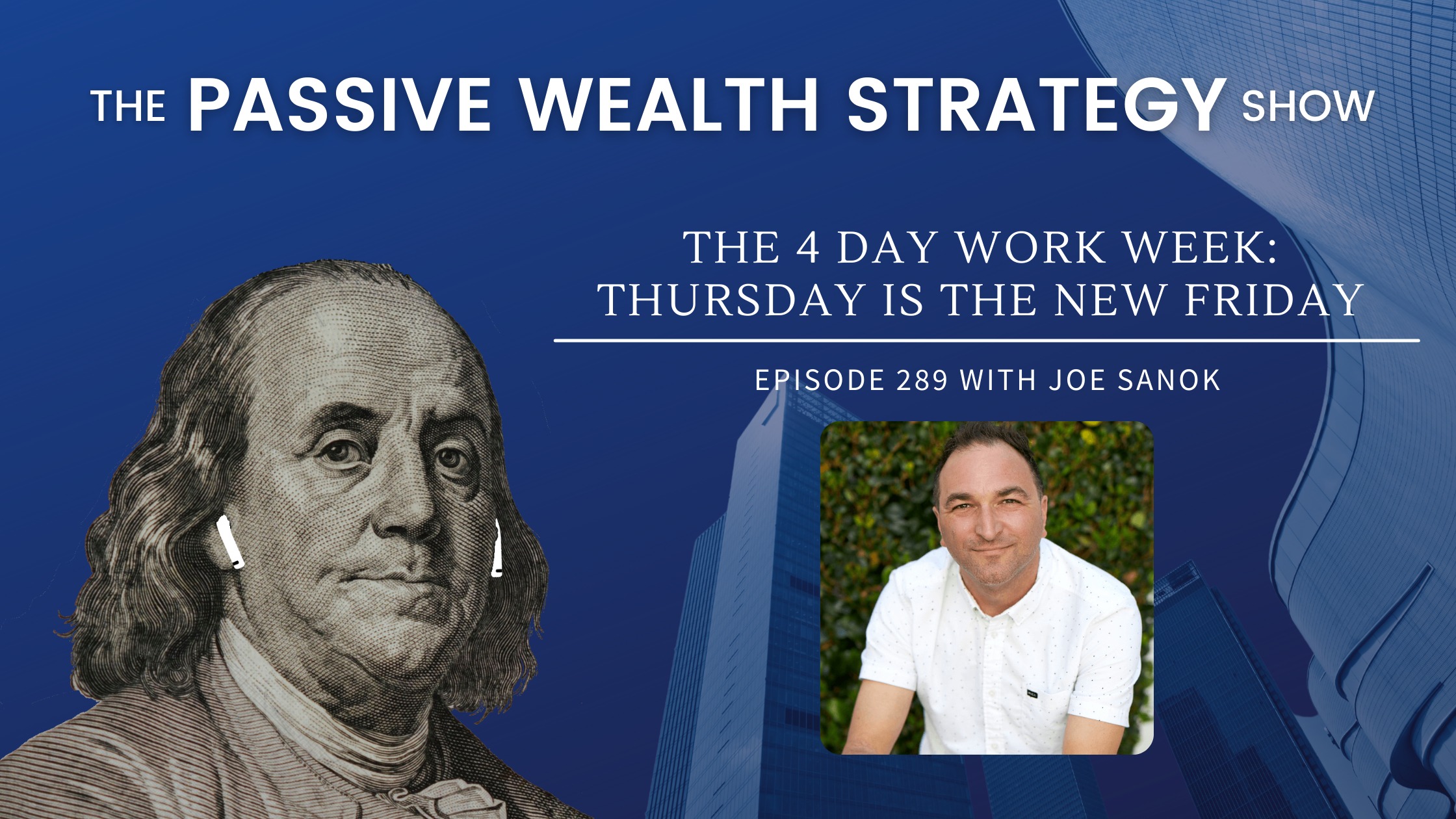
The 4 Day Work Week: Thursday is the New Friday with Joe Sanok
Joe. Thank you for joining us today.
Taylor. I am so excited to be here. Thanks for having me.
It’s great talking with you. So for our listeners out there who don’t know about you and your business and your book and everything that you do, can you give us an intro and tell us about yourself.
Yeah. So I’m a podcaster keynote speaker and author. I just wrote a book called Thursday’s the new Friday, but I’m trained as a psychologist. So for years, I had a counseling practice where I did traditional mental health work and sold that in 2019 and have worked independently since then doing my podcasting and consulting.
I also have two daughters, seven and 10 that are amazing. And I often have glitter in my hair from playing with them. Yeah. She’s there. I’m a single dad for them. They’re just like my world and it’s great to be able to do this kind of work. And I have some of that freedom to be a good dad too.
Awesome. Nice. So can you tell us about Thursday as the new Friday? What’s the core idea behind the book? And that sounds great, but what does it really mean and mean for us in terms of, building passive income building past.
Yeah, I think that oftentimes we start with that.
We think we know how society is and how it has been, and we just assume it has to keep going that way. And so I often like to start with, before we talk about Thursday’s the new Friday, just backing up a little bit to understand how do we even know. Time and the way that we view it right now, because if it’s actually not accurate, that it’s as solid as we think, then that’s easier to deconstruct something if it’s maybe not as solid as we think.
So if we reverse say 4,000 years or so to the Babylonians they actually made up the seven-day week they looked up and they saw the sun and the moon. They looked down and saw the earth, the sun, mercury, Venus, Mars, and Jupiter. So the brightest thing in the sky is that there are seven of them. We should have a seven-day week.
The Romans had a 10 day week and the Egyptians had an eight-day week. And so literally. What we think is normal. The seven-day week is actually just made up by some power brokers in Babylon several thousand years ago. So it just as easily could have been a five-day week. And we had 73 in a year.
Because in nature, a year makes sense. It’s how long it takes us to go around. The son of David makes sense. It’s how long it takes to spin, for a day. But in a week there’s nothing in nature that points to that. So if we just start with this thing that we think is super solid, the seven-day week is just.
Let’s fast forward to the late 18 hundreds, early 19 hundreds. So the average person was working 10 to 14 hours a day, six to seven days a week. So a farmer’s schedule except they weren’t all on the farm. They were, working in factories and had a terrible life. And then in 1926, Henry Ford in an effort to sell more cars to Ford employees.
Started the 40-hour workweek. He literally has. There are all these quotes I have in the book of how he said people aren’t going to buy a car to just get to work faster. A horse and buggy are fine for that. But if they have a weekend where they get to see friends and they get to recreate, they’re going to want to make the most of that thing.
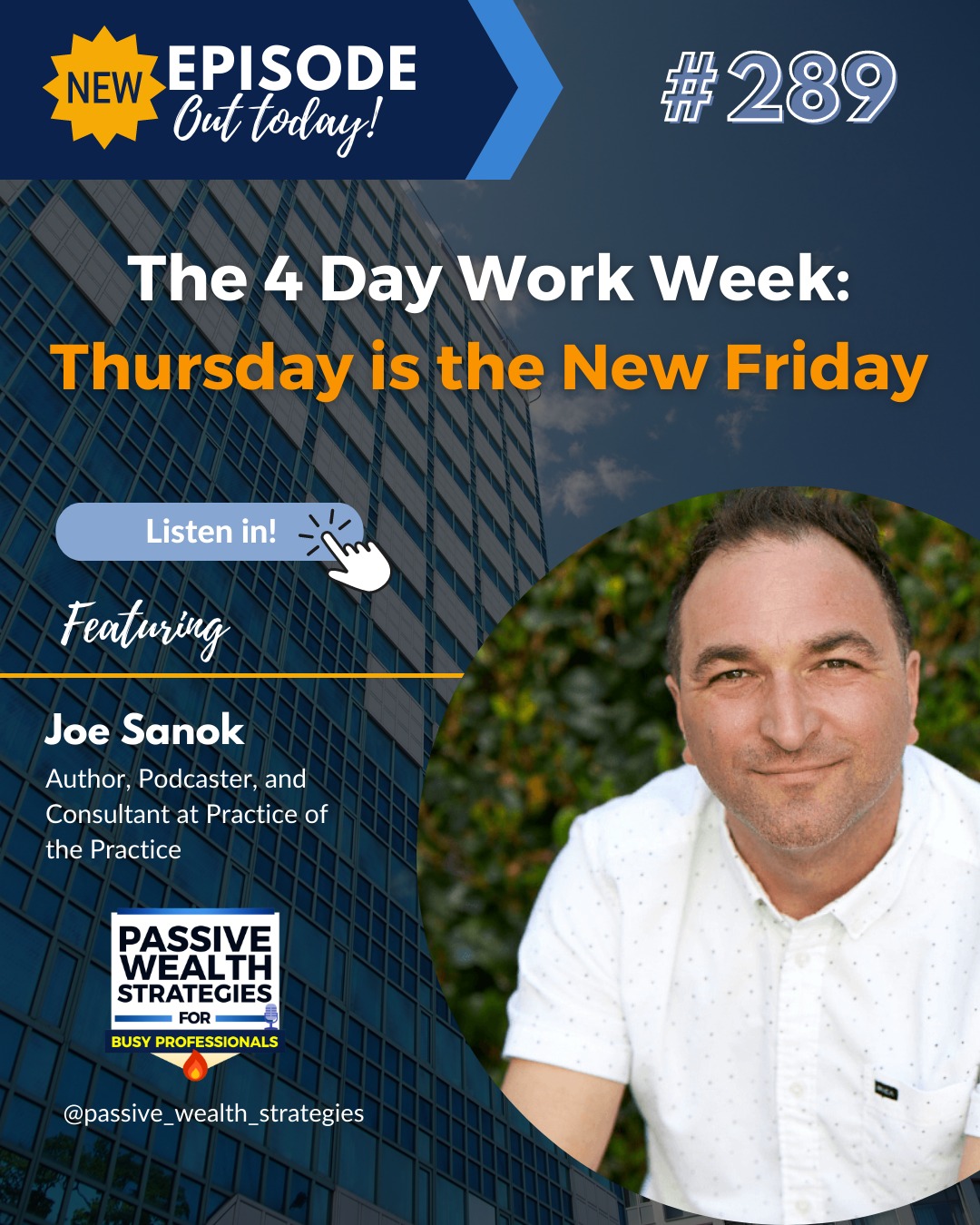
The 4 Day Work Week: Thursday is the New Friday with Joe Sanok
So they’re going to want a car. And so to sell more cars, he started the 40 hour work week and it took off across the nation as a, less than a hundred years ago, we get this thing the 40-hour workweek. That to us right now feels so. Normal now back then, that was not normal. That was a big transition. It was a big evolution for humanity.
It was needed at the time and we’ve outgrown it. We’ve for a long time known that Fridays are half workdays. You look at the eighties and nineties and like TGI Friday. TGIM. Full house and Urkel, like it’s a day we host wedding showers or baby showers or cheesy team building activities, or we plan our weekend.
It’s already moving out of the workweek. And so now as the post-pandemic generation, we get to decide how we want to work moving forward. Do we believe as the industrials believed? People are machines that you plug them in, you set it and forget it, that they just keep being productive. No, we’ve outlived that we’ve outgrown grown.
That’s not anything anyone believes anymore. We still have some vestiges of the industrialists, like our public school system. That’s very much, like a conveyor belt, this just going through. But there are lots of ways that we out-think and outgrow the industrialists. So Thursday’s the new Friday is all about saying.
Right now as this post-pandemic generation, what are we going to do moving forward? Do we think that the way we’ve been living has the best health outcomes has the best productivity has the best creativity? I would actually argue that the research says that it’s not been the best model. Sure. It was a step forward, but there’s something greater on the other side that we get to co-create.
So a lot of very interesting points in there. You mentioned productivity and if you looked at now versus say a hundred or 120 years from now, sure. Worker productivity is significantly higher than it is now. Plus the industrialists so forth that we’re putting folks, Henry Ford, even putting folks in a job.
Okay. Your job isn’t to think your job is to turn this bolt all day, every day for, seven days a week if that was the case. Whereas now there’s a lot more. Cognitive load and requirements and knowledge work, especially for our listeners out there. Many of whom are, making over six figures.
You need to really have your mind much more present and on-point and active too, engage in your business, which is not possible to do, 80% of the hours of the week. You just can’t do it.
Yeah. And I think that’s really pointing to how being burned out and stressed out is not when we have our best ideas.
So if we are moving more and more away from just an information economy where it’s about gathering information into an implementation economy, what does it take to actually implement things and to find those shortcuts, to hurry through something, to actually get it done. You don’t want to have someone that’s burned out.
You don’t want to have someone that you know is working 60 or 70 hours a week. The brain just hasn’t developed to the point that’s going to be good for their creativity or their productivity. And we’re seeing research study after research study, come out. That’s just pointing to that. Just recently, the Iceland study that came out 2,500 people are part of this study.
It was a multi-year study and also multiple disciplines. So it wasn’t just school teachers. It was. Pharmacists, it was across the board and they found that these 2,500 people were more productive on a four-day workweek. And it wasn’t a 40 hour squished into four days. It was 32 hours. And so they were more productive.
They were happier. They had better health outcomes. They’re more connected to their family and friends. All these things that we know intuitively now research are showing that the four-day workweek actually is better for society and create.
I wonder you mentioned the, as we move into the post-pandemic world, things that we learn at least where we are right now, and things are being recorded, companies are starting to say, all right, we really want people to start coming back to the office.
And, personally, I haven’t worked in an office in years, but when I did, man, I hated it. That was the worst part of anything for me was having to go to an office, forget, whatever I was doing for the job. Sitting in a cube under the fluorescent lights. And you got bill lumber, Lumberg coming by every once in a while.
I’ll do the job from anywhere, but man, don’t make me come here. Have you seen any like research in that regard? How well did people function, whether at home or remotely versus in the office or is it like a spectrum? What do you see it?
It’s there? Yeah. So some of the research that I look into that I looked into was from April until June of 2020 looking at overall worker satisfaction, happiness, and productivity all went up during the beginning of the pandemic.
You think about it so I always say, okay, the research says that but if you just took someone’s commute, if they’re commuting an hour each day, and they get 10 hours of their life back plus the stress of a commute. Plus if you’re packing up a lunch or you’re zooming to go find lunch and standing in line for lunch, and then you add on top of that, just all the stresses of trying to be a good parent and then make your family look Instagram where the, in all those stresses that we just got to pause for a minute and say, how are we living our lives from a work standpoint and from a life standpoint, We got a glimpse into, oh, it doesn’t have to be this way now.
I don’t want to reframe the pandemic as something that was just glorious for everyone. Of course, there were tons of people that were frontline workers. There was a lot of stress, but we got to pause and say, what are we actually doing here? Do we actually want to do the things we’re doing? I think that intentionality.
Both in our work and in our life is something that rarely do we really think through. It’s usually reactionary where we work five days a week and we’re stressed out and maxed out. And then we just barely recover over the weekend, put up with soccer practice or all sorts of other things. And then we just do it all over again.
Instead of saying first, let’s start with this coming weekend. How do I make it this weekend? Be as exciting and robust for me so that I feel refreshed. So my brain is lined up with my natural neuro sinking. And then when I enter into the workweek, I’m excited. I’m ready to go kill it because I actually spent the time to think through what do I want to get out of this weekend to prep myself for that next week?
Both in our work and in our life is something that rarely do we really think through. It's usually reactionary where we work five days a week and we're stressed out and maxed out. And then we just barely recover over the weekend, put up with soccer practice or all sorts of other things. And then we just do it all over again.
- Joe Sanok Tweet
So being productive with our weekends now, One, I think the aspect of this, when you’re talking about reducing the number of hours overall, that you’re working, things like that, that you might clash with society and I’m guilty of this myself is how everybody wants to say, oh, I’m hustle. And I’m working really hard and putting all these hours in like I said, I’m guilty of this too.
I kinda where the fact that I like to work on stuff on my sleeve, that doesn’t mean I don’t take time off, but man, I like working and you have Instagram, everybody talking about, hashtag hustle, and all that kind of stuff. How does that square with what you’re saying?
And, take some time off, relax, make the most of your time when you’re not working versus how everybody wants to be perceived. Hashtag grind, all that stuff. Yeah.
There’s a couple of factors there. For one, you point to it that people it’s an ego boost for them.
And so if we start with do we want our lives to be based on ego boosts that really are just trivial in nature? Or do we want some depth to ourselves? Not everyone gets to decide for themselves what they want, but if you live your life based on other, people’s saying, wow, look at you like that all so much.
To me, that’s pretty superficial. There’s a lot more that we can do to impact the world in a positive way. Secondly, the actual productivity research shows that you get less and less effective as you hustle more and more. So you’re actually like when I see people being like hashtag hustle culture, I just worked 90 hours.
I’m like, You are so inefficient that you couldn’t get that done in 20 hours, wait and be done with your business and not outsource all this stuff that you shouldn’t be doing, because there’s no way that those hustle culture people are spending 70 hours on the stuff that’s most productive and get to actually move the needle forward.
Most of it is actually. Just things that are wasting time. And so if we look at that 80 20 rule saying what’s the 20% that gives you 80%. Like they’re not even thinking through that. It’s just, I’m going to just spin and spin. And so what happens when you actually condense your schedule?
Say you go from this whole hustle culture and you say, okay, I’m going to try to work four days a week, even like every other week. I’m just going to give it a whirl to take Fridays off. So you have all this work you’ve been doing. Are you going to condense into that week, the best work or the worst work?
If you have 20 tasks that you typically do in a typical week, and now you can only do 15, are you going to drop the ball on the five most important tasks that bring in the most money for you? No, absolutely not. You’re going to do it on the most important 15. And so when you drop the ball by giving yourself less.
It naturally reveals the best use of your time. And so you say, okay, these five tasks that I just didn’t get to, and then the next week, you’re like, I didn’t get to them again. That’s giving you great data, a typical business owner, maybe they’re taking the trash out and vacuuming and doing all this, and then they’ve condensed their schedule and their trash is piling up and they haven’t vacuumed their office in a while.
Yeah. As the business owner. Stop vacuuming your own office. Like you should hire someone that loves doing that cleaning. And so then you start to refine into the things that you do best. And when you do that, it allows you to level up faster because if every week you’re doing the very best use of your time over and over, you’re going to outpace your competition.
Whereas if you’re burning yourself out and your energy levels, because you’ve hashtag ho, hustled so much, you’re going to just go slower. And so when I see those people online, I feel bad for them because of the ego side where it’s man, your value is coming from the ego of this, but also you’re not going to get the outcomes you think you’re going to get by hustling so hard and you’re not optimizing your brain that actually will help you get to that end goal that you.
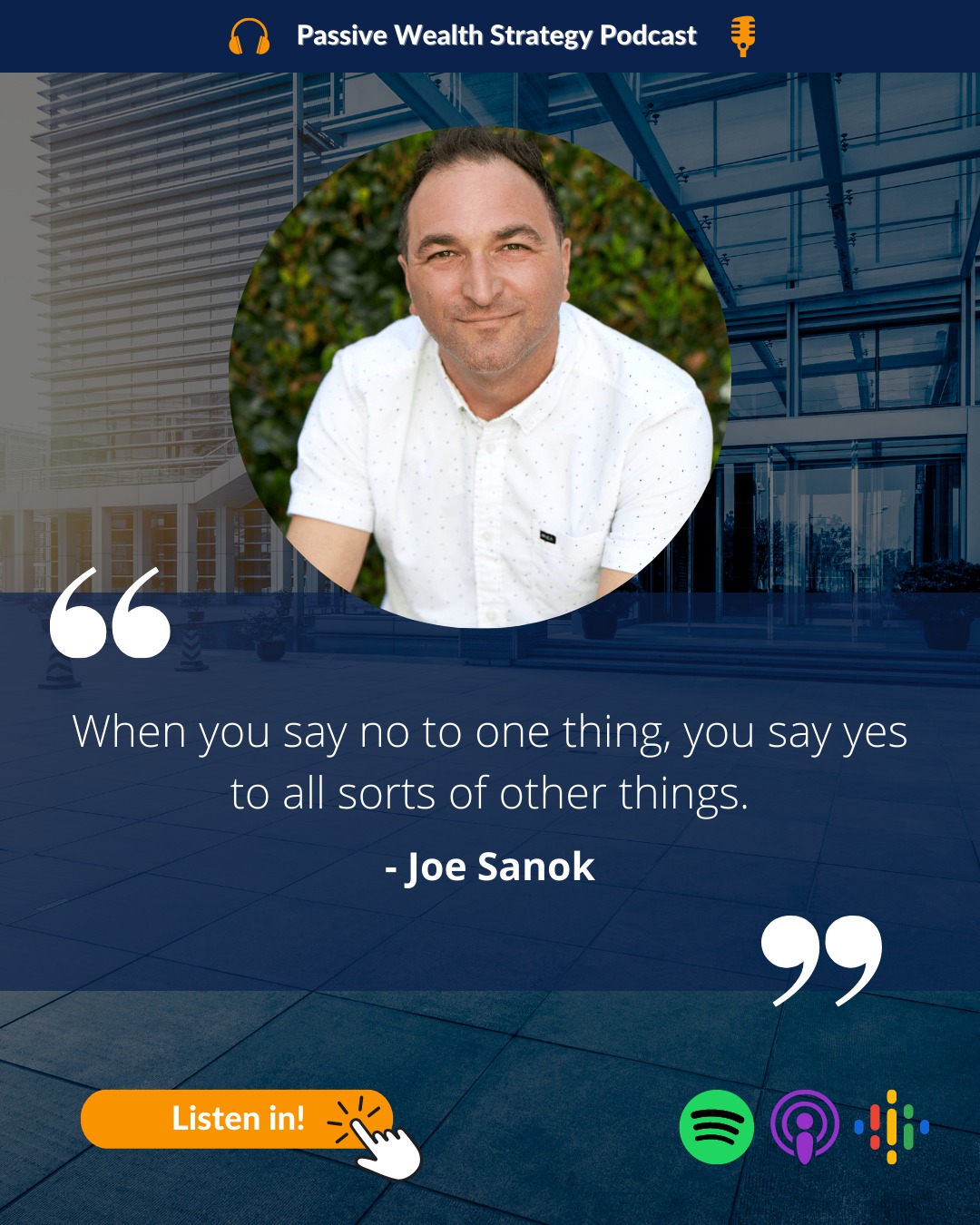
When you say no to one thing, you say yes to all sorts of other things.
- Joe Sanok Tweet
You were talking about the business owners here, but there’s the other, a lot of our listeners out there are busy professionals. They work at W2 and, they’re, they have expected hours they’re supposed to be working. What are your thoughts as to, what a busy professional can do in that situation?
And then I suppose more broadly, how can we change or start to change corporate culture. Some of that, that maybe we can be more focused on performance rather than say the veneer of we clock in at eight and you clock out at five and that’s what matters as opposed to what you actually complete.
Yeah. So the entrepreneurs, their problem is that they’re so excited about their job and, it’s like we have so many ideas. We need to figure out boundaries around those ideas. But the typical W2 employee has a much different set of problems in regards to enacting the four-hour work, a 40-hour workweek, and to move.
Four days. And so the first step that they want to do is have a conversation with your supervisor about just where they’re at. So are they even open to a four-day workweek? Are they open to looking at the KPIs, the key performance indicators of your position instead of just the hours worked?
This is going to give you an idea of, are you working for an industrialist that just wants butts in the chair, or are you working with someone that has open-minded is moving into this new era? And we hear about the great resignation happening, right? People leaving their jobs, post-pandemic for a variety of reasons.
Employers are scared to lose good quality people. So if ever there’s a time, we have a window right now, if you’re a W2 employee to say, how do we want to reinvent things, but you’re going to get some interesting data to know, are you working for an industrialist? Cause you might be. And it might just be.
You then have to decide, is this the kind of person I’m going to work for, or do I need to start looking elsewhere? So assuming that your supervisor is somewhat open to the idea of moving into a four-day workweek. So in that conversation, you’re going to want to look at what are the KPIs for your particular position and the key performance indicators.
And so what is it that you are judged on already? This isn’t like something new is. In your annual review, is it the number of sales? Is it customer satisfaction? Is it accounting reports? Is it, marketing plans? What is it that you’re judging? And then it’s best to do this in a small group of three to five people.
So if you have other coworkers that your supervisor says, Hey, we want to try a four-day workweek. Let’s try to do this. This is what we’re going to do together. Those other three to five people then can opt into that voluntarily. And that’s where you don’t want to push people to opt into it involuntarily because it’ll sway the experiment.
So let those people go with the five days, cause that’s a great AB test to compare your stats to their stats. If they don’t want. So then once you’ve established the couple of KPIs, you’re looking at two, maybe three key performance indicators. The next conversation you’re going to have as a team is what are the clear boundaries in the time that you’re off.
And so are we going to send emails after 6:00 PM? Are we going to do anything on Fridays? Take it, team. Maybe they’re in charge of passwords. And if someone gets locked out, like on a Friday, you can’t just say Saturday, you’re locked out of your password. You’re not, we aren’t helping people on Fridays.
You’ve got to have some things there. So every team is going to be different. The industrialists want us to have this one plan that fits everybody, but we’ve outgrown that we’ve moved into an evolutionary model where we’re adapting as smart people, these concepts. So it’s more of a menu than this prescription that we give to you.
So you’re adapting. You’re coming up with those solutions ahead of time. Then you’re going to start the experiment. It’s going to be two to three months that you’re going to do this four-day workweek. And then from there every week, you’re going to have reported to that supervisor on those KPIs.
Are we up 2% down, 5%? And then what are we going to do to continue that upward trajectory? Or what are we going to do to address the downward trend that we’re seeing? And so that person is getting weekly updates on it. Okay. Here are the exact numbers where we’re at. And then on Monday morning or whatever, the first day is of the week, you’re going to have a conversation as a team.
This is a short 20-minute conversation about how did we do with our personal boundaries outside of work. And so you’re saying, Hey, Jim, from accounting, you sent me an email at 9:00 PM on Wednesday. And then I came in Thursday morning and I felt out of the loop, that’s going to force us all to, start checking our emails.
That’s something we’ve committed to you, or maybe there was an emergency. And we now need to say, you know what, on Wednesdays, we get this report and we do all need to check our emails till 9:00 PM that night. So you’re going to adjust and adapt and say, okay, we’re going to call out bad behavior, or we’re going to analyze it and say, Ooh, our best guess at boundaries, wasn’t what we need for these rules.
We need to adjust a couple of things. And then every month you’re going to do a 360 review of everything that’s happened. You’re going to give qualitative information. So how do people feel? What are they just reporting out to the team? And also what are the actual numbers on where you’re at with things.
And then at the end of the entire project, you’re going to do a full report so that your supervisor, if they’re backed into the corner and their boss says what you did a four-day workweek, they can say, Hey, check out this data. We have all these extra creative endeavors. We had higher productivity, better health outcomes, and people are just happier overall.
Then they’re not put in a tough position because of the experiment that they chose to do.
So the entrepreneurs, their problem is that they're so excited about their job and, it's like we have so many ideas. We need to figure out boundaries around those ideas. But the typical W2 employee has a much different set of problems in regards to enacting the four-day workweek.
- Joe Sanok Tweet
So I suspect this question might be answered with, just run the experiment, but how do you land on it. Say four and four days a week instead of five working as opposed to keeping the five, but reduce the length of the days, like fewer hours per day, why one versus the other.
And I think we’re going to see a lot of changes in the kind of messy middle out of the pandemic, where people are going to be experimenting and we’re actually bringing together those experiments to try to analyze those together. So I would start with right now. But if we look at sprint research and batching research, people tend to do better when they know that they’re completely off and then they come back and they’re completely on.
And so to be able to say for four days, we’re going to run full tilt together, and then you go, do you? That tends to with the brain, allow the brain to recover more. But there are other places like Kalamazoo valley, a community college that started a four-day workweek in the summer. It was actually an HVAC instructor who discovered that if they had switched in the summer they would actually save millions of dollars in air conditioning costs.
And so the board was like, great. Let’s do it. There are no students on campus on Fridays. Anyway. They switched to a 36-hour workweek over four days, and then people can do their own flexible scheduling within those four days. So some of the offices now, instead of opening at eight 30 open at seven and other ones stay open later until seven or eight at night, which then helped the student outcomes helped with a number of things.
But there’s, that’s where having the experiment model rather than having it just be a blueprint like the industrialists is more important because we want it to be able to level up over.
I gotta say this the idea of, quote, the industrialist kind of reminds me of. Say folks around my age that, more socialists, communists complaining about the capitalist, and it feels maybe a little class for the ferry.
I don’t know. Maybe I’m just reading into it too much.
No. You got to have an enemy. Do you know what I mean? That whole like Joseph Campbell, StoryBrand who’s the death star. It was appropriate at the time. I want us to make sure that we transcend and include. There are good things the industrialist taught us. There are good things that they brought into. And we can also say there are things that were dysfunctional. And I hope the future generations look at where we’re at now and say, whoa, that was such a big step for humanity. I can’t believe we ever worked a 40 hour work week, five days a week.
That’s crazy. What did they think? And this is a step forward. And I imagine it’s going to be imperfect as well. And so a hundred years from now say we’re moving away from the four-day workweek. I imagine there’s going to be things that people say for our generation, that it was a good step and it still needs to be.
So one of the things that make me wonder about like, or think about the best way to word this a reason why that old paradigm might end up being a little sticky and why might want to try to hang around is that ultimately I see it as a little more of a power structure hierarchy were, one guy wants to say, all right I say you need to be in that seat from eight to five from Monday to Friday.
And I’m the boss and that benefits me. And I like being in power. Anybody that’s worked in corporate America has definitely seen that or work with that kind of guy before. That’s not to say everybody is. But that guy is out there and tends to, can be a boss. What do you think about that?
And cause some folks might go to their supervisors. Hey, I want to try this and gonna say no, What do you think?
Let’s think about the 18 hundred early 19 hundreds. So 1926, this 40-hour workweek starts right now, the quote 40-hour workweek is pretty much the norm, but there are still people that want you to work 10 to 14 hour days, six to seven days a week.
And so it’s not like we lost those people. They had the 18 hundreds kind of mindset. So are we going to just lose these people? No. Is there a predominant cultural shift that’s happening where people are saying, why are we doing things this way? There will always be people that pushed back on the other side.
And to me, that’s less important than saying what are models that are working, that we can point to as examples as experiments, as ways of thinking that we can outgrow that old model, because part of that old model, that sticky is that it’s easy. You can say. Show up, do this. Hey, I showed up at eight and I left at five.
Who cares? What did I do during that time? Yeah. I talked to Janet at the water cooler for 90 minutes and it looked like we were having some meeting, but we were just talking about our weekends. So it’s I met all the criteria. I don’t have to think nor does my boss have to think. So I think even just stepping back and say, Why do we even want this many people on this team?
Why do we want them here for this period of time? What are we trying to achieve? And if we do that in a shorter period of time, why wouldn’t we want to reinvent our model? So it is easier because we don’t have to think about it. But is that what’s going to get us to the new challenges of the 21st century and through those, I don’t think so.
I think we need thinkers that can think creatively and say, wait for a second, this isn’t working let’s shift, and let’s apply this to a new one.
Nice. I liked that. And I like the deliberate intentionality of this, the setting up systems. And I think using newer say technology, probably using newer technology-driven tools to engage actual productivity, rather than just say stamping a time clock and, washing those things.
We’re really going to step it up. And I think ultimately if. If this idea works and we start using better metrics than you, you get stronger organizations out of it, more productive, and ultimately make more money and create more value, which is what it’s all about. Yeah, absolutely. Yeah. Awesome. All right.
Now we’re going to take a quick break for our sponsor. Joe, I’ve got three questions. I ask every guest on the show. Are you ready? I am ready. All right. Great. First one. What is the best investment you ever made other than in your education?
Yeah. So the starter home that I bought I bought that in 2010. I remember I ran the numbers a couple of years later and looked at how many nights I would have to have that be an Airbnb to be able to upgrade to a house almost twice the size.
And it was only about four weeks of actual Airbnb time to make up the difference. And by doing that and running the numbers and knowing I was able to upgrade to a larger. And now for years, I’ve had, now we have two Airbnbs that we’ve been running for a number of years. So I would say that was a great upgrade in-house, but then it actually didn’t cost them.
Awesome. Awesome. Short-term rentals have been very profitable for many investors out there. So that’s great that you use that strategy. We had the best investment. Now we’ll go to the other side of that coin and the worst investment. What is the worst investment you ever made?
Yeah, I would actually say lending money to friends is probably the worst investment.
And I saw it oftentimes as whether it was in college or post-college Hey like they’re in a stuck situation, but every single one of those friendships Because of that power dynamic because of the not paying back. And to me, it’s just not worth it. I’d rather say to a friend, Hey, let me buy you dinner when you’re in a stuck spot and just have it be a gift or gift, somebody.
And so I’d say that’s probably the worst investment because I lost friends over it.
Yeah. Yeah. My favorite question here at the end of the show is what is the most important lesson you’ve learned in business?
My favorite lesson, is that when you say no to one thing, you say yes to all sorts of other things.
And so the idea that I can set clear boundaries and limits in whether it’s friendships or business or personal time and that, that downtown. Actually helps me be explosive when I go back to work. And so it’s just this amazing kind of superpower we all have and just limiting what we’re going to put all of our energy into and saying, here are the exact things I’m going to put my energy into, whether that’s personally or in business makes you be able to explode in other areas that are the most intentional and will help you level up fastest.
That is a great point in my real estate investing world. My, my progress, my income everything started to accelerate once I really learn how to say no to almost everything because that meant, I’m saying yes to the things that are the exact right fit for me and the trajectory that I’m headed in.
And I got to say, keep saying no to those things that don’t fit, but sound tempting. So that’s a great lesson. And Joe, thank you for joining us today and thank you for everything that you’re doing out there. I think ultimately if. This strategy, these ideas work, and we get one more productivity in two, especially more satisfaction than, the world is going to be a better place.
So that’s excellent. If folks want to reach out, if they want to learn more, they want to find your podcast, want to find a book, any of that great stuff, where can they track?
Yeah, so they can buy Thursday is the new Friday, wherever they get their books. We’re actually going to be launching a mastermind group in early November 2021.
And so if you buy 10 of the books, then you get access to that mastermind group. So it’s a six-session mastermind group. That’s going to meet at noon Eastern every Thursday, skipping Thanksgiving. And so we’re going to be enacting Thursday as the new Friday. We’re going to be also doing. Steve, but even more importantly, we’re helping other influencers meet other influencers.
So you’re going to have a chance to have community and connect with other people that are rising in their skills as well. Also, I have the practice of the practice podcast, where we explore business topics and marketing around owning mostly counseling and coaching private practices. So those are the main spots other than Joe sanok.com, where we’re putting together all of those experiments to help you make Thursday.
Awesome. Joe, thank you once again for joining us today to everybody out there. Thank you for tuning in. If you’re enjoying the show, please leave us a rating or review on Apple Podcast. Five stars, if you don’t mind, I appreciate that so much that helps other people learn about the show, because that helps us rank higher in the apple podcast ecosystem.
And I’m always honest with you guys that gives me a nice little warm and fuzzy feeling. Cause I get to see that you’re engaging with the content and you’re escaping the wall street casino along with us. If you haven’t subscribed. Take a second. Look up the show, hit the subscribe button. That way you’ll get every new episode straight to your mobile device.
Every Monday, Tuesday, and Thursday. If you know anyone who could use a little bit more passive wealth in their lives, please share the show with them and bring them into the trod. Thank you for tuning in once again. I hope you have a great rest of your day and we’ll talk to you on the next one. Bye-bye.

Thursday is the New Friday by Joe Sanok
About our Guest
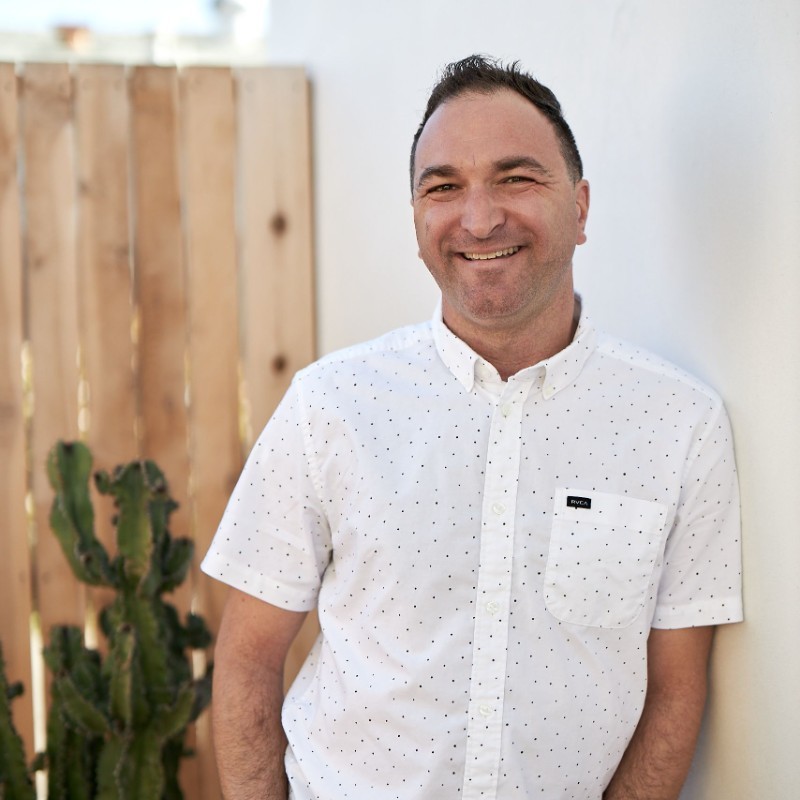
Joe Sanok
Joe Sanok is the author of Thursday is the New Friday (HarperCollins) releasing Oct 2021.
He is a keynote and TEDx speaker, business consultant, and podcaster. Joe has the #1 podcast for counselors, The Practice of the Practice Podcast. Joe is also writer for PsychCentral, has been featured on the Huffington Post, Forbes, GOOD Magazine, Reader’s Digest, Entrepreneur on Fire, and Yahoo News. He is the author of five books and has been named the Therapist Resource top podcast, consultant, and blogger.
Joe Sanok helps private practitioners to find innovative ways to start, grow, and scale a private practice. For resources go to: http://www.practiceofthepractice.com/resources
Joe is also the founder of Podcast Launch School, A curriculum that teaches new Podcasters how to attract amazing guests and monetize their podcast nine months.
Joe is a TEDx speaker, writer, and has the #1 podcast for private practices. He’s been featured in Forbes, Huffington Post, and Entrepreneur on Fire.
Episode Show Notes
Joe Sanok is the author of Thursday is the New Friday (HarperCollins) releasing October 5, 2021. He is a keynote and TEDx speaker, business consultant, and podcaster. Joe has the #1 podcast for counselors, The Practice of the Practice Podcast. Joe is also a writer for PsychCentral, has been featured on the Huffington Post, Forbes, GOOD Magazine, Reader’s Digest, Entrepreneur on Fire, and Yahoo News. He is the author of five books and has been named the Therapist Resource top podcast, consultant, and blogger.
Joe Sanok helps private practitioners to find innovative ways to start, grow, and scale a private practice. For resources go to: http://www.practiceofthepractice.com/resources. Joe is also the founder of Podcast Launch School, A curriculum that teaches new Podcasters how to attract amazing guests and monetize their podcast for nine months. Joe is a TEDx speaker, writer, and has the #1 podcast for private practices. He’s been featured in Forbes, Huffington Post, and Entrepreneur on Fire.
[00:01 – 04:50] Opening Segment
- Get to know Joe Sanok
- Joe talks about himself
- Psychologist in practice and being the best dad ever!
[04:51 – 10:26] The 4 Day Work Week: Thursday is the New Friday
- How do we view time?
- Why the 7 Day Week is Just Made Up
- The 40-Hour Work Week and How We’ve Outgrown It
- Burned Out and Stressed Out Do not Mean Productivity
- Working in the office versus working at home
- Why it is reactionary and not intentionally
- Productivity can be taking the time to rest and #hustle
- Changing Corporate Culture
- Joe shares steps on how to change corporate culture
[10:27 – 27:06] Changing and Changes in the W2
- Talking with your boss and making a 4 Day Work Week Possible
- We’re adapting as smart people!
- Adjusting the 5-Day Work Week
- Transcend and include
- Stepping it Up with New Systems and New Technology
[27:07 – 35:06] Closing Segment
- Quick break for our sponsors
- Groundfloor offers short-term, high-yield real estate debt investments to the general public. Check www.passivewealthstrategy.com/groundfloor/ to get started.
- What is the best investment you’ve ever made other than your education?
- His starter home (short-term rental)
- Joe’s worst investment
- Lending money to friends
- What is the most important lesson that you’ve learned in business and investing?
- “When you say “no” to one thing, you say “yes” to all sorts of other things.”
- Connect with my guest. See the links below.
Tweetable Quotes:
“Now is the post-pandemic generation. We get to decide how we want to work moving forward.” – Joe Sanok
“Being burned out and stressed out is not when we have our best ideas.” – Joe Sanok
“We need thinkers that can think creatively.” – Joe Sanok
————
Connect with Joe Sanok through Instagram and LinkedIn.
Visit their website https://joesanok.com/.
Grab a copy of Thursday is the New Friday.
And listen to the Practice of the Practice Podcast.
Invest passively in multiple commercial real estate assets such as apartments, self storage, medical facilities, hotels and more through https://www.passivewealthstrategy.com/crowdstreet/
Participate directly in real estate investment loans on a fractional basis. Go to www.passivewealthstrategy.com/groundfloor/ and get ready to invest on your own terms.
LEAVE A REVIEW + help someone who wants to explode their business growth by sharing this episode or click here to listen to our previous episodes







